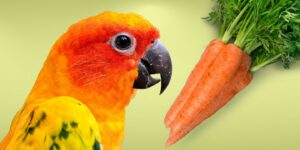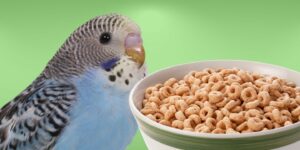Can dogs eat xanthan gum? The short answer is yes, dogs can consume xanthan gum in small amounts, and it is generally considered safe. However, there are some potential risks and benefits to consider before feeding your dog xanthan gum, as some dogs may experience digestive upset or interference with medication absorption.
What is Xanthan Gum?
Xanthan gum is a type of polysaccharide that is produced by the bacterium Xanthomonas campestris. It is commonly used as a thickening agent and stabilizer in a wide range of food products, as well as in many personal care and cosmetic products.
Common Uses of Xanthan Gum
Xanthan gum can be found in various food products, including salad dressings, sauces, ice cream, and gluten-free baked goods. In personal care products, it is often used to create a smooth, thick texture, such as in toothpaste, shampoos, and creams.
Xanthan Gum in Dog Food
The Role of Xanthan Gum in Dog Food
In dog food, xanthan gum is typically used as a thickening agent and stabilizer, helping to improve the texture and consistency of the product. Additionally, it can help to enhance the palatability of the food by improving its mouthfeel.
Commercial Dog Food Brands Containing Xanthan Gum
Many commercial dog food brands may contain xanthan gum, particularly those that are "grain-free" or "gluten-free." Always check the ingredients list on your dog's food to ensure it is safe and suitable for your pet's specific needs.
Potential Benefits of Xanthan Gum for Dogs
Improved Digestibility
Due to its ability to absorb water and form a gel-like consistency, xanthan gum can help improve the moisture content in dog food, making it more digestible and easier for dogs to process.
Enhanced Texture and Palatability
Xanthan gum can contribute to a smoother texture in dog food and treats, making them more appealing and enjoyable for dogs to eat.
Risks and Side Effects of Xanthan Gum for Dogs
Digestive Upset
Some dogs may experience digestive upset when consuming xanthan gum, including symptoms such as bloating, gas, and diarrhea. However, these symptoms are typically mild and resolve on their own without intervention.
Interference with Medication Absorption
Xanthan gum's ability to form a gel-like consistency in the stomach could interfere with the absorption of certain medications. If your dog is on any medications, consult your veterinarian before feeding them food containing xanthan gum.
Allergic Reactions
Although rare, some dogs may experience allergic reactions to xanthan gum, manifesting as symptoms such as itching, redness, and swelling. If you suspect your pet is allergic to xanthan gum, discontinue feeding products containing this ingredient and seek veterinary advice.
Tips for Feeding Xanthan Gum to Dogs
Monitoring Your Dog's Reaction
When introducing any new ingredient to your dog's diet, keep an eye on how they react to it, paying close attention to potential signs of digestive upset or allergic reactions.
Safe Dosage and Frequency
It is important not to give your dog large amounts of xanthan gum, as excessive consumption can lead to digestive issues. As a general rule, xanthan gum should not make up more than 5% of their feed intake and should only be offered as an occasional treat.
Alternatives to Xanthan Gum
If you prefer to avoid xanthan gum in your dog's diet, look for alternative thickeners and stabilizers, such as agar agar or carrageenan, which may be more easily tolerated.
Frequently Asked Questions
Can Dogs Be Allergic to Xanthan Gum?
Yes, although it is rare, dogs can have an allergic reaction to xanthan gum, leading to symptoms such as itching, redness, and swelling.
What Should I Do If My Dog Eats Too Much Xanthan Gum?
If your dog consumes too much xanthan gum, monitor them closely for signs of digestive upset. If symptoms persist or worsen, consult your veterinarian for advice.
Are There Any Dog Treats Without Xanthan Gum?
Yes, there are dog treats available that do not contain xanthan gum. Always read the ingredients list carefully to ensure the product is suitable for your pet.
Consult Your Veterinarian
When to Seek Professional Advice
If you have any concerns about your dog's dietary needs or potential allergies, it's always best to consult your veterinarian for professional advice tailored to your pet's specific requirements.
Individualizing Your Dog's Diet
Every dog is different, and their dietary needs can vary based on factors such as age, weight, activity level, and health status. Your veterinarian can help you create a customized diet plan that meets all of your dog's nutritional needs, including advice on the suitability of ingredients like xanthan gum.











